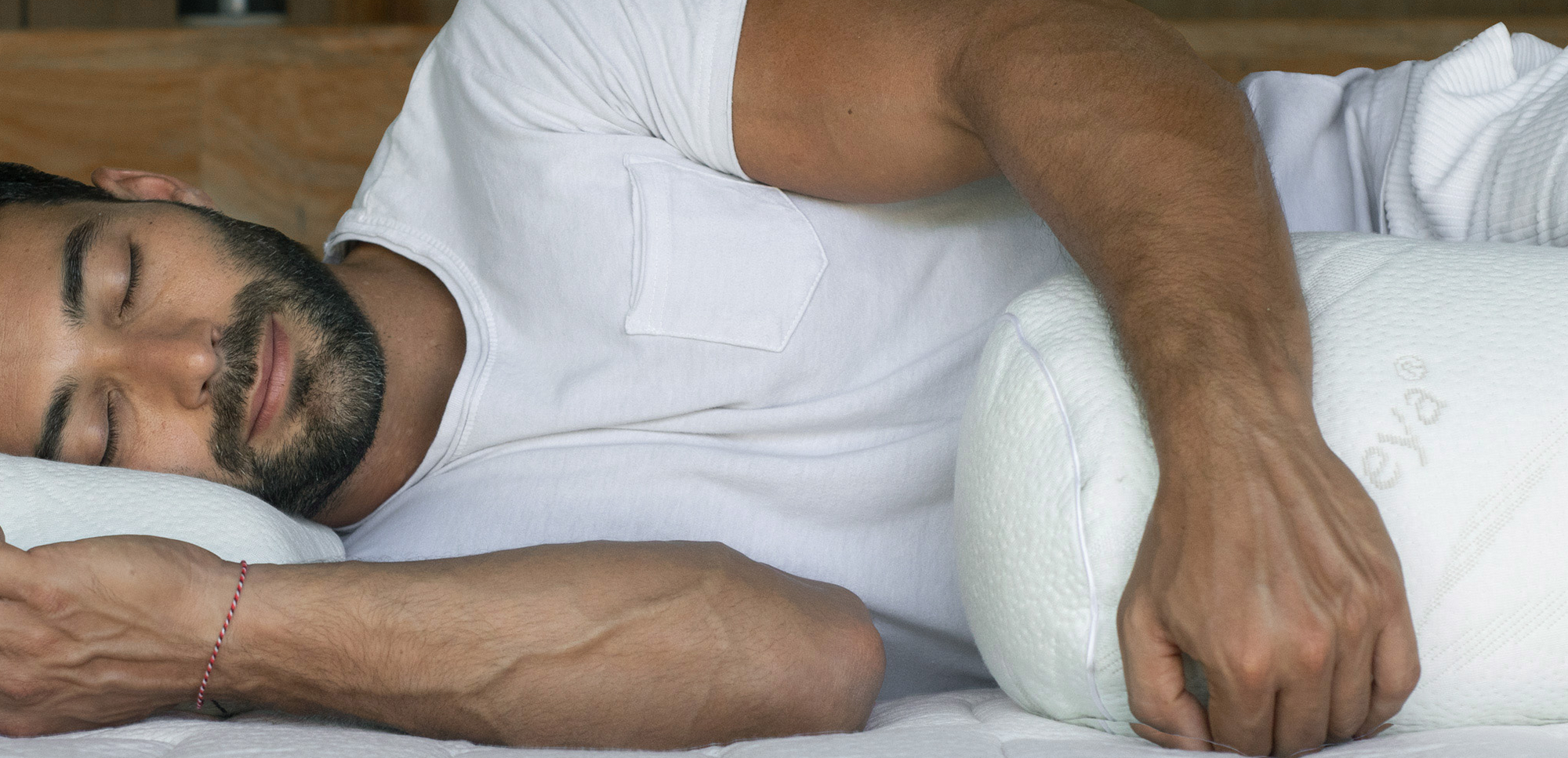Ever wake up feeling tired, even after what seemed like a full night’s rest? Or find yourself wanting a nap not long after getting out of bed? That constant heaviness can quietly take its toll. It affects your mood, focus, and overall quality of life. When tiredness lingers throughout the day, it starts to impact your work, relationships, and general well-being.
Everyone’s sleep needs are slightly different. Some people feel their best with seven hours, while others need nine. But if you're consistently tired despite getting what should be enough rest, it may signal that something deeper is going on. Ongoing fatigue is not just frustrating. It can be disruptive and difficult to manage.
The good news is that there is often a reason behind it and a way forward. Understanding what is causing your sleepiness is the first step toward feeling more energised, more present, and more like yourself again. This guide explores some of the most common reasons people struggle with persistent fatigue so you can take informed steps toward better rest and brighter days.
What Exactly is "Excessive Sleep"? Understanding Hypersomnia
Let’s start by clarifying what we mean when we talk about having too much sleep. It’s not just about having a long lie-in on the weekend or catching up on rest after a busy week. Medically, the term used is hypersomnia. This condition refers to ongoing daytime sleepiness even after what seems like a full night’s rest. For some, it can also mean consistently needing more than 10 or 11 hours of sleep each night just to feel somewhat functional.
Understanding this type of tiredness is a crucial first step in uncovering the causes of sleeping too much and identifying what might be behind your symptoms.
Hypersomnia generally falls into two main types: there's Primary, where the sleepiness isn't caused by another health problem (like Idiopathic Hypersomnia, where the trigger isn't clear), and then there's Secondary, which is brought on by an existing medical condition, medication, or another identifiable factor. Pinpointing which type applies is key because it significantly impacts your physical, mental, and emotional well-being, and it dictates how it should be treated.
Delving into the Key Causes of Excessive Sleepiness
Let's explore what might actually be behind this persistent sleepiness. There's a surprisingly broad range of possibilities.
Underlying Medical Conditions
Significant sleepiness can frequently point to an existing health issue. Discussing persistent tiredness with your GP is crucial for proper diagnosis.
Sleep Disorders
These are very common culprits:
-
Sleep Apnoea: A condition where breathing briefly stops during sleep, disrupting restorative rest and causing significant daytime fatigue.
-
Narcolepsy: A neurological disorder that affects the brain’s ability to regulate sleep, leading to overwhelming sleepiness and symptoms like sudden muscle weakness.
-
Idiopathic Hypersomnia: Characterised by excessive daytime sleepiness with no known cause, making it particularly challenging to diagnose and manage.
-
Restless Legs Syndrome (RLS) and Periodic Limb Movement Disorder (PLMD): Both conditions involve involuntary leg movements that interrupt sleep quality, contributing to persistent tiredness.
Other Health Issues
Your mental state matters; conditions like Depression and Anxiety can lead to profound fatigue. Various physical ailments contribute too, including an underactive thyroid (Hypothyroidism), low iron levels (Anaemia), Chronic Fatigue Syndrome (ME), Fibromyalgia (due to chronic pain disrupting sleep), and managing conditions like Diabetes (due to blood sugar fluctuations). Certain brain or nervous system conditions such as Parkinson's Disease, Multiple Sclerosis, or issues after a head injury (Post-Concussion Syndrome) are also known causes of sleeping too much or significant fatigue.
Lifestyle and Habits
Sometimes, excessive sleepiness isn't down to a medical condition but is rooted in daily routines and environmental factors.
Poor Sleep Hygiene
This is a major factor. Having an irregular sleep schedule, using phones or screens right before bed, consuming caffeine or alcohol late, or sleeping in an uncomfortable environment (too noisy, bright, or the wrong temperature) directly lowers the quality of your rest. These are preventable causes of excessive sleep.
External Factors
Be aware that many medications can cause drowsiness as a side effect. Always check with your doctor if you suspect this. Your diet plays a role too; not getting enough nutrients, eating lots of sugar or processed foods, or even being mildly dehydrated can affect your energy levels and sleep needs. Lastly, a lack of regular physical activity or high levels of unmanaged stress are significant contributors to fatigue that can manifest as excessive sleepiness.
When Should You See a Doctor About Sleeping Too Much?
We all have days when we feel a little off, but if you're noticing that excessive daytime sleepiness is starting to affect your ability to function, concentrate, or enjoy life, it might be more than just ordinary tiredness. If this persistent drowsiness comes with other symptoms, such as mood changes, memory issues, or difficulty staying awake during the day, it’s worth checking in with your GP. They can help uncover any underlying causes of too much sleep and guide you toward a path that supports better energy and more restful nights.
Diagnosis and Treatment for Excessive Sleepiness
If you do see your doctor, they'll want to get a full picture of your health to determine why you’re sleeping too much.
Diagnostic Approaches
This might involve a Sleep Study (Polysomnography), a Multiple Sleep Latency Test (MSLT), Blood tests, or Actigraphy. These tests help pinpoint the specific causes of excessive sleep.
Treatment Options
The best treatment will always depend on the underlying causes of excessive sleep. This could mean treating an identified medical condition, making lifestyle adjustments, or prescribed medications.
The Importance of a Comfortable and Supportive Mattress
While we've discussed many potential causes of too much sleep, it's also vital not to overlook your immediate sleep environment, particularly your mattress. An old, unsupportive, or uncomfortable mattress can easily contribute to disturbed sleep and leave you feeling tired the next day, indirectly contributing to the problem.
Consider the Heveya® Natural Organic Latex Mattress for Better Sleep and a Healthier You
Now, stepping away from the medical side of things for a moment, let’s talk about something closer to home: your mattress and bedding. It might seem like a small detail, but the surface you sleep on night after night plays a major role in how well you rest. That, in turn, affects how alert or drained you feel during the day.
An old or unsupportive mattress can seriously disrupt your sleep. If it’s sagging, your spine may not stay properly aligned, often resulting in lower back pain. A mattress that’s too firm can put pressure on your shoulders or hips, especially if you’re a side sleeper, leading to aches that prevent deep, uninterrupted rest. And if the mattress is old and full of dust mites or mould, it can trigger allergic reactions. These can range from sneezing and congestion to itchy eyes, all of which make for a restless night.

The bedding you use matters too. Synthetic materials tend to trap heat and moisture, which can cause overheating or night sweats. Rough or low-quality fabrics might feel scratchy against your skin, leading to discomfort that keeps your body from fully settling into sleep. These small irritations can prevent you from entering the deeper stages of rest that are essential for feeling truly refreshed.
If you’re feeling persistently tired despite logging enough hours in bed, it might be time to reassess your sleep environment. A good mattress is not just about softness or firmness. It’s about proper support, breathability, and helping your body stay aligned throughout the night. The Heveya® Natural Organic Latex Mattress is a strong step in the right direction. Made from 100% natural organic latex, it offers the ideal combination of responsiveness and pressure relief, helping your body relax so you can truly rest. It’s also naturally breathable and hypoallergenic, making it perfect for hot sleepers or those with sensitivities. Pairing this with soft, cooling bedding made from natural materials like organic bamboo can further enhance your sleep quality.
When it comes to reducing excessive sleepiness, creating a healthy sleep setup is one of the simplest and most impactful places to start.
In Conclusion
Excessive sleepiness is a complicated issue, stemming from a variety of potential causes of excessive sleep. However, the encouraging news is that by understanding these underlying factors and taking appropriate steps – whether that’s consulting your GP, making lifestyle changes, or improving your sleep environment – you can significantly improve your sleep quality and regain your energy. If you are persistently concerned about how sleepy you feel, please don't hesitate to speak to your doctor to investigate the causes of too much sleep in your specific situation. Getting a proper understanding and a suitable plan of action can truly make all the difference.














